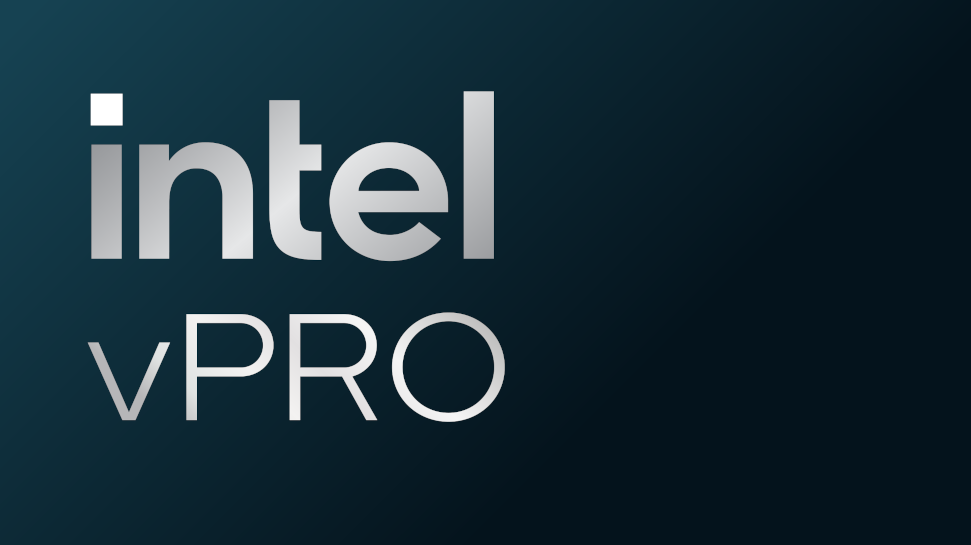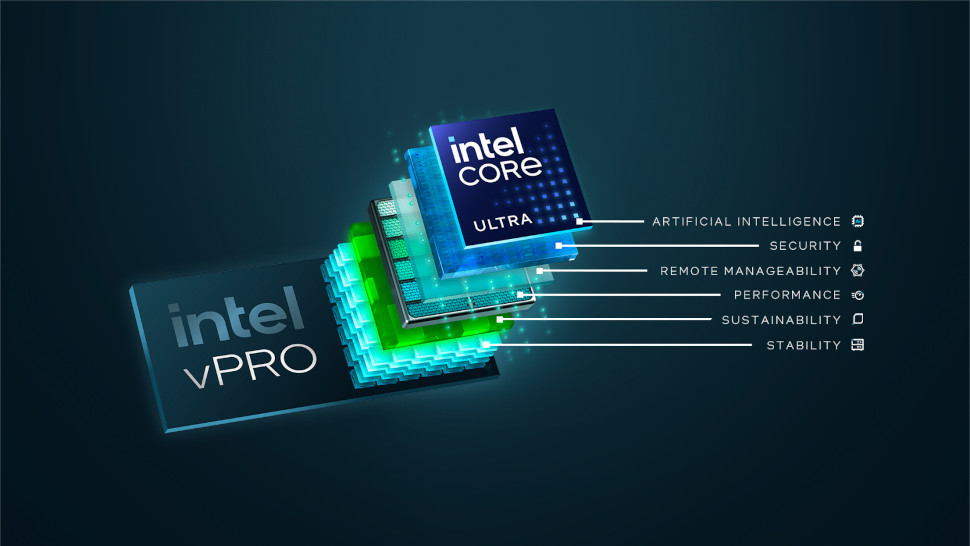
Intel has big plans for its newest vPro platform, unveiled at Mobile World Congress 2024, and TechRadar Pro was lucky enough to see at the show exactly how the new hardware will be utilized.
Ahead of the launch, we were given a look at a number of demos, powered by Intel vPro hardware, showing off exactly what the new systems can do.
As businesses of all sizes are looking towards data and power-hungry tools such as generative AI, having a hardware stack that can make sure these run effectively and efficiently is vital, and Intel is hoping its vPro system can provide that.
Security boost
One of the company's four main focuses with the new vPro is security, and we saw several demos showing this off at MWC 2024.
Intel has worked with CrowdStrike, which has built its Falcon platform on AI and ML to cope with huge workloads and demands. Working with the new vPro platform allows CrowdStrike to use its most advanced AI technology, with the CPU and NPU sharing the workload of scanning, detection and analysis being sent to the cloud, allowing other CPU space to be used for other tasks, and meaning security scans are no longer such CPU hogs. This can also shorten the time between detecting a threat and a system being compromised, keeping businesses of all sizes safe from the latest threats.
We also saw how Windows Defender is using Intel's Threat Detection Technology running across the CPU, GPU and NPU, allowing for more powerful analysis and detection tools for developers, and Bufferzone is offloading scanning and analysis of phishing threats from the cloud to the NPU, making detection more effective.

With more and more workers now choosing to embrace hybrid working, manageability is another key tenet, and we saw a demo from GoTo outlining how its LogMeIn Rescue tool can help with remote access management.
Utilizing the computing power of the new vPro system can help companies that might have thousands of employees, and possibly hundreds of IT issues, greatly speeding up response times from LogMeIn agents, and making sure employees get back to work quickly.
This is especially pertinent in situations where a user (or an agent) can't actually log in to an affected device, for example if the device just won't turn on, or if there is no-one physically around to engage with it. Devices powered by vPro can help cut down on response times, helping build a unified solution offering out-of-band services, and remotely powering on broken devices to kick-start a repair - all from one centralized platform.

When it comes to content creation, a demo using Adobe Premiere Pro also showed how easy it will soon be to quickly boost image and video content with the click of a button, with the powerful new vPro platform able to speedily improve whatever you are working on.
Finally, we saw productivity-related demos showing how Intel has been working closely with Microsoft 365 to enable more advanced usage of Copilot, which can quickly summarize long Microsoft Teams chats, or provide live captions on a video call. The accessibility functions were also taken to a whole other level with a demo from Intel venture Omnibridge showing off the live translation of American Sign Language (ASL) using automated speech recovery tools, which will soon be trained on 10,000 signs.
With all these demos showing off the potential capabilities on Intel vPro, the company is hoping that by getting an AI-enabled hardware footprint in the market now will mean businesses everywhere can immediately benefit whenever they look to upgrade their business fleet.
With the aim of seeding around 100 million devices by the end of 2025, it's clear Intel has big plans for the vPro platform, and it could well be powering a business laptop near you soon.
- Miss any news from Mobile World Congress? Check out our MWC 2024 live blog







